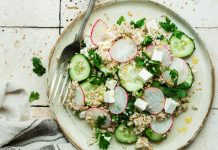
Inflammation is your body’s way of protecting itself and aiding in healing, but when it gets out of control, it can lead to chronic diseases like arthritis, diabetes, and heart disease.
As a result, many people are exploring natural supplements alongside medication and lifestyle changes to combat inflammation.
Here’s a breakdown of eight science-supported anti-inflammatory supplements.
Turmeric (Curcumin): Turmeric, a staple in Indian cooking, contains curcumin, which has powerful anti-inflammatory effects. Studies have found curcumin effective against inflammation seen in arthritis, diabetes, and more.
However, curcumin doesn’t absorb well on its own, so combining it with black pepper extract, or piperine, enhances its absorption.
Omega-3 Fatty Acids: These fatty acids, found in fish oil and flaxseed oil, are highly effective against inflammation. Research shows omega-3s can reduce the production of inflammation-related molecules and substances like eicosanoids and cytokines.
Regular supplementation can alleviate arthritis symptoms, boost heart health, and prevent diseases related to inflammation.
Ginger: Known for its role in both cuisine and natural remedies, ginger has anti-inflammatory properties that can block the synthesis of pro-inflammatory compounds and provide antioxidant benefits.
Ginger supplements are commonly used to relieve inflammation-related digestive disorders and arthritis.
Green Tea Extract: Green tea is rich in antioxidants and compounds that can diminish inflammation. Its key component, epigallocatechin-3-gallate (EGCG), has been shown to lower inflammation markers and protect cells from damage.
Resveratrol: Found in red wine, grapes, and berries, resveratrol is celebrated for its anti-inflammatory and antioxidant capabilities. Studies suggest it can decrease inflammation in those with heart disease, insulin resistance, and other conditions.
Zinc: This essential mineral plays a crucial role in immune function and inflammation control. Proper zinc levels are associated with reduced inflammation and oxidative stress.
Zinc supplements are commonly utilized to expedite wound healing, enhance immune function, and mitigate inflammation.
Vitamin D: A deficiency in vitamin D can lead to increased inflammation and a higher risk of inflammatory diseases.
Supplementing with vitamin D may help diminish inflammation and protect against diseases by moderating the immune system and reducing pro-inflammatory responses.
Spirulina: This blue-green algae is gaining popularity for its potential health benefits, including its anti-inflammatory effects. Research indicates spirulina can reduce inflammatory marker production and may help alleviate symptoms in conditions like allergic rhinitis.
Concluding Thoughts: Natural supplements can be a formidable tool in fighting inflammation, offering a spectrum of health benefits with typically fewer side effects than traditional medications.
However, it’s crucial to consult with a healthcare provider before beginning any supplement regimen, particularly if you have existing health issues or are taking other medications.
With careful consideration and guidance, incorporating these anti-inflammatory supplements into your diet could be a proactive step towards better health and reduced inflammation.
If you care about health, please read studies that vitamin D can help reduce inflammation, and vitamin K could lower your heart disease risk by a third.
For more information about health, please see recent studies about new way to halt excessive inflammation, and results showing foods that could cause inflammation.
Copyright © 2024 Knowridge Science Report. All rights reserved.



